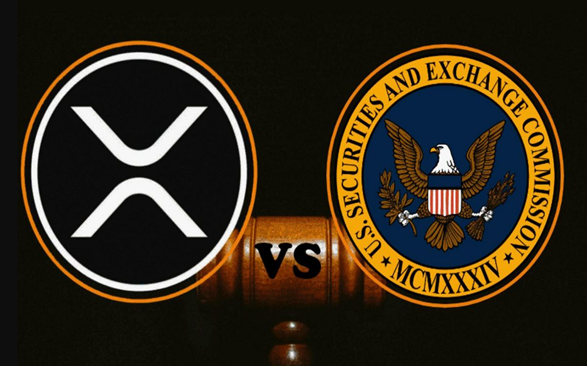by Jude Ayua
The US cryptocurrency industry witnessed a significant development on 19 March as the US Securities and Exchange Commission (SEC) dropped its nearly five-year-long lawsuit against Ripple Labs, issuer of XRP cryptocurrency.
Ripple CEO Brad Garlinghouse announced the development in a video message on X, expressing his joy: “I’m finally able to announce that this case has ended. It’s over.” Reflecting on the development of the case over the years, he said:
Sitting here today and reflecting on four years ago, it seems very clear to me that this case was doomed from the start… I truly felt like I knew then that Ripple was on the right side of the law, but I felt that we were also going to be proven to be on the right side of history.
Garlinghouse closed his message with gratitude to everyone who supported Ripple through the fight it “never wanted but one we knew we had to win.” He particularly hailed Ripple Chief Legal Officer Stuart Alderoty, the entire Ripple employees and community for their respective roles.
Timeline of the case
The SEC filed a lawsuit against Ripple Labs in December 2020, alleging the company raised over $1.3 billion through unregistered XRP sales, claiming it was a security. It lasted nearly five years, with a July 2023 ruling by Judge Analisa Torres stating XRP is not a security for retail investors on exchanges, but is for institutional sales. In October 2023, the SEC dropped charges against Ripple executives appealed this decision, seeking to overturn the retail sales ruling, until on 19 March 2025, when Ripple CEO Garlinghouse announced that the SEC dropped its appeal, effectively ending the case.
While the SEC has not issued an official statement confirming the dropping of the case, the development aligns with the regulatory shift under Acting Chair Mark Uyeda, who has overseen the withdrawal of several other high-profile crypto cases, including those against Coinbase, Consensys, Gemini, and Kraken. This trend indicates a move away from the aggressive enforcement stance of former Chair Gary Gensler, as influenced by the Trump administration’s more crypto-friendly rhetoric.
Read also: XRP is predicted to reach $10 as Ripple’s legal battle nears end.
Genslar-led US SEC didn’t protect investors—Garlinghouse
In his message, Garlinghouse highlighted his earlier stance that crypto regulation is not “something the US government should be in the business of doing.” He criticized the SEC’s approach under former Chairman Gary Gensler: “they went after the whole industry using the same arguments they use against [Ripple],” he asserted.
“They weren’t out to protect investors; they were out to intimidate and terrorize… the lawsuit wiped out 15 billion of value from innocent XRP holders,” he argued, accusing the Gensler-led SEC of having been a “market manipulator.” Garlinghouse explained that the judge in the case found the SEC lacking “faithful allegiance to the law” and was sanctioned for “discovery abuses,” a pattern they repeated in other crypto cases.
Ripple’s victory, hope for the industry
The end of Ripple’s legal battle is not only a win for the company, but also beneficial to the crypto industry, especially as the case determined the legal status of XRP. Garlinghouse noted that Ripple paved the way for other industry players to see the value in fighting against regulators’ unlawful actions.
“We won … proving the digital asset XRP is not a security,” Garlinghouse said, adding that Ripple’s win signifies an “end for those who turned our own government against technology and [the] entire industry.” He also noted that Ripple “laid the groundwork for policy makers to adopt a set of rules for crypto.”
Echoing the US President Donald Trump’s crypto policy goals, Garlinghouse advised: “It’s time to make the US the crypto capital of the world. Thankfully, we have new leadership and [an] executive… Let’s make the most of this. This is an incredibly promising moment… let’s leave tribalism behind.”
Policy implications for the US cryptocurrency industry
The SEC’s decision to end the Ripple case has several potential implications, including:
- Regulatory clarity and precedent: The 2023 court ruling, which the SEC affirmed dropping its appeal, establishes that XRP is not a security for retail sales on exchanges. This sets a precedent that could influence the classification of other cryptocurrencies and provide clarity for the industry, potentially reducing regulatory uncertainty.
- Shift in US SEC’s regulatory approach: The SEC’s dropping of the Ripple case, among other cases, signifies a major shift toward a more friendly regulatory framework, as influenced by the Trump administration’s pro-crypto stance. Earlier in March, President Trump named XRP among assets for a potential US Digital Assets Stockpile, further affirming his administration’s promise to create a favorable environment for cryptocurrency.
- Potential for XRP ETFs: With the resolution of the legal uncertainty around XRP, there is increased optimism for XRP exchange-traded funds (ETFs). Several asset managers, including Grayscale, Bitwise, and Franklin Templeton, have filed for XRP ETFs. Bloomberg experts estimate a 65-75% chance of these ETFs’ approvals by the end of 2025, which could attract more institutional investment.
Read also: US SEC drops cases against Coinbase and OpenSea.
Market reaction and future outlook
The news of the SEC dropping its appeal against Ripple triggered an immediate surge in XRP’s price, with a 10% or higher increase on 19 March 2025. This reaction reflects the market’s positive response to the long anticipated regulatory clarity. The news removed the uncertainty that had depressed XRP’s value since the lawsuit began. Garlinghouse, in his message, stated that XRP holders lost approximately $15 billion in market value during the case.
Looking ahead, the end of this case could boost a more investor-friendly environment for cryptocurrencies. Globally, however, challenges remain, including regulatory disparities and market volatility. The potential for XRP ETFs and inclusion in a US stockpile could also promote Ripple’s position, attracting more investors to it.
Read also: Trump establishes Strategic Bitcoin Reserve and US Digital Asset Stockpile
Jude Ayua is a policy analyst at CAB. A lawyer, Jude is an associate at Infusion Lawyers where he is a member of the Blockchain & Virtual Assets Group. He is also a member of the Policy & Regulations Committee of the Stakeholders in Blockchain Technology Association of Nigeria (SiBAN). Jude reports and writes on crypto policy and regulations. jude@infusionlawyers.com
Discover more from Crypto Asset Buyer
Subscribe to get the latest posts sent to your email.




